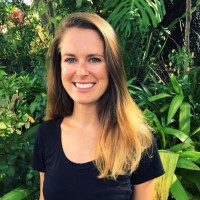Thesis Proposal Review: Centring women in the planning and delivery of Field Epidemiology Training Programs.
Developing a framework to enhance gender equity and inclusivity in Field Epidemiology Training Programs (FETPs).
Speakers
Content navigation
Description

About
Globally, there are more than 70 Field Epidemiology Training Programs (FETPs) operating in over 100 countries that aim to support workforce capacity development across public health surveillance and outbreak response. The Training Programs in Epidemiology and Public Health Interventions Network (TEPHINET) oversees the quality and standards of FETPs, through support and accreditation. In its February 2019 by The Path Forward: The Global Field Epidemiology Roadmap, TEPHINET articulated an agenda which seeks to “modernise FETPs into the 21st century.” However, there is no consideration of gender within the roadmap, nor are there any published gender analyses reviewing the impact of the intensive, residential form of training that characterise FETPs has on women.
Participatory action research (PAR) will frame inquiry into how gender intersects with field epidemiology training globally. While actions will be driven by the researchers and their findings, the key aim for the process is to provide practical recommendations for TEPHINET to support FETPs to deliver gender sensitive and inclusive programs. Participants or “co-researchers” will help to advise the direction of a qualitative study, which will engage faculty, fellows and graduates of FETPs from different regions globally to understand the gendered barriers and enablers to engagement. Through PAR processes, these findings will be used to develop a framework to enhance gender equity and inclusivity in FETPs. The framework will be piloted to inform the final product/s and recommendations provided to TEPHINET.
Bio
 Rachel balances her PhD with her role on the Field Epidemiology in Action program, which collaborates with departments of health in Papua New Guinea and Solomon Islands to develop and strengthen regional field epidemiology capacity. She has completed numerous postgraduate trainings, including a Master of Clinical Epidemiology from the University of Newcastle (Australia). Outside of Australia and the Pacific, she has experience working in community health in Madagascar.
Rachel balances her PhD with her role on the Field Epidemiology in Action program, which collaborates with departments of health in Papua New Guinea and Solomon Islands to develop and strengthen regional field epidemiology capacity. She has completed numerous postgraduate trainings, including a Master of Clinical Epidemiology from the University of Newcastle (Australia). Outside of Australia and the Pacific, she has experience working in community health in Madagascar.
Location
** Hybrid Event **
Bob Douglas Lecture Theatre, Building 62, Mills Road ACTON 2601
or
Join via Zoom
Meeting ID: 821 5375 9112
Password: 743640
